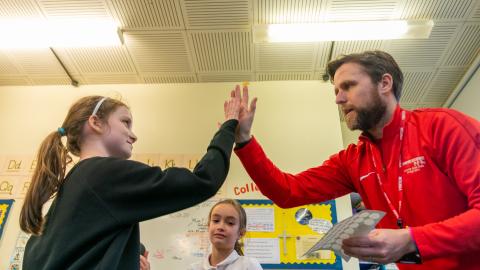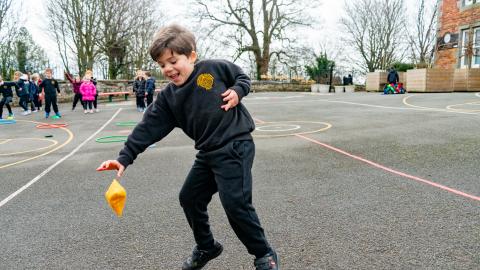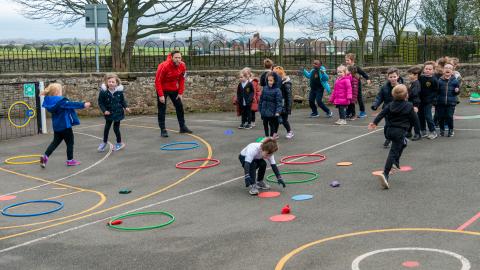Physical Education
The National Curriculum for physical education aims to ensure that all pupils:
- develop competence to excel in a broad range of physical activities
- are physically active for sustained periods of time
- engage in competitive sports and activities
- lead healthy, active lives.
Physical education, experienced in a safe and supportive environment, is a unique and vital contributor to a pupil’s physical development and well-being. It is one of the main drivers to develop three of our core values: resilience, perseverance and respect.
The physical education curriculum develops an increasing self-confidence in our pupils and their ability to manage themselves and their bodies within a variety of movement situations.
The progressive skills curriculum, combined with sympathetic and varied teaching approaches, endeavour to provide stimulating, enjoyable, satisfying and appropriately challenging learning experiences for all of our pupils. It is intended that our children, irrespective of their innate ability, enjoy personal success and are motivated to further develop their individual potential.
Through lesson time, specialist coaching and our broad range of sports clubs*, we support pupils in developing skilful use of the body, the ability to remember, repeat and refine actions and to perform them with increasing control, co-ordination, fluency and safety. We also support pupils in developing an increasing ability to select, link and apply skills, tactics and compositional ideas.
Children are encouraged to describe and make simple judgements on their own and others work, and to use their observations and judgements to improve performance. We believe in the importance of drawing cross-curricular links, and to this end, pupils are taught about the effects of exercise on the body in science as well as PE.
Across the Goldsborough Sicklinghall Federation, we ensure an understanding of safe practice, and the development of a sense of responsibility towards a child’s own and others’ safety and well-being.
Swimming is taught by pool staff at Knaresborough Pool and accompanied by school staff.
P.E - Earrings
The advice is as follows:
National guidance on personal effects is given in ‘safe practice in physical education and school sport’, published by the association for physical education (afPE). Website: www.afpe.org.uk.
Personal effects (e.g. jewellery, religious adornments, watches, hair slides, belts, spectacles, hearing aids) constitute a hazard if worn while participating in physical activity and should be removed beforehand. Taping over ear studs is not recommended as a solution.
Earrings cannot be made safe if the child doesn't remove them so they cannot take part in the activity e.g. P.E or go swimming with them in. The Local Authority sought clarity with insurance about this and this is what has been agreed by them.
Moving forwards, it is preferable for earrings not to be worn in school (ideally, they should be worn outside of school e.g. weekends).
If earrings are worn, they must be flat to the earlobe.
Earrings will not be permitted for P.E or swimming.
If the child does wear earrings on these days and cannot remove them independently in school, they will have to be involved in the lesson in ways that avoid direct physical participation (e.g. act as referee, scorer, analyst or use other equipment, etc.). If this cannot be achieved they will not take part at all.
Children will not be permitted to join in the swimming lesson.



